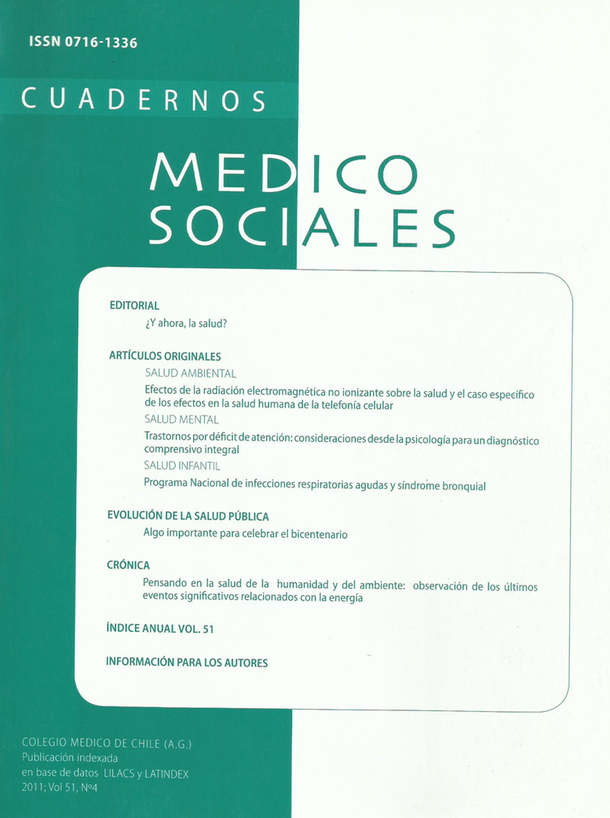The Chilean National Program for Acute Respiratory Infections and Bronchial Obstructive Syndrome
Keywords:
Acute respiratory infection, obstructive bronchitis, primary health cares, risk factorsAbstract
In Chile, ARIs are major problem in heath. During the 80s the infant mortality rate for pneumonia rose, with studies demonstrating that many of the deaths occurred at home or on route to the hospital. These studies identified risk factors and that the predominant etiology was viral. Taking these facts in account an the type of organization of the Chilean Health Service a program of ARI was elaborate which was later adopted as the official Health Ministry program, This incorporated the modern management of obstructive bronchitis, including physiotherapist and the transfer of technology to primary health care centers to improve their operational capacity. The National ARI Programmed has 630 units throughout the country and has brought about a fairer distribution of health care services and a better technical quality to the poorer populations of our country. Amongst the more important results that the program have achieved, we emphasize the reduction in hospitalizations for obstructive bronchitis, the repeated lowering of infant mortality for pneumonia, especially in death at home. Independent evaluations have demonstrated a highly efficient cost-benefit ratio used in the program. With the lowering mortality for pneumonia we must stress the need to improve the quality of life for Chilean children, especial when we consider the increasing number of children with chronic respiratory disease.
Downloads
Downloads
Published
How to Cite
Issue
Section
License

This work is licensed under a Creative Commons Attribution-NonCommercial-ShareAlike 4.0 International License.


